by Mark Brinkherhoff
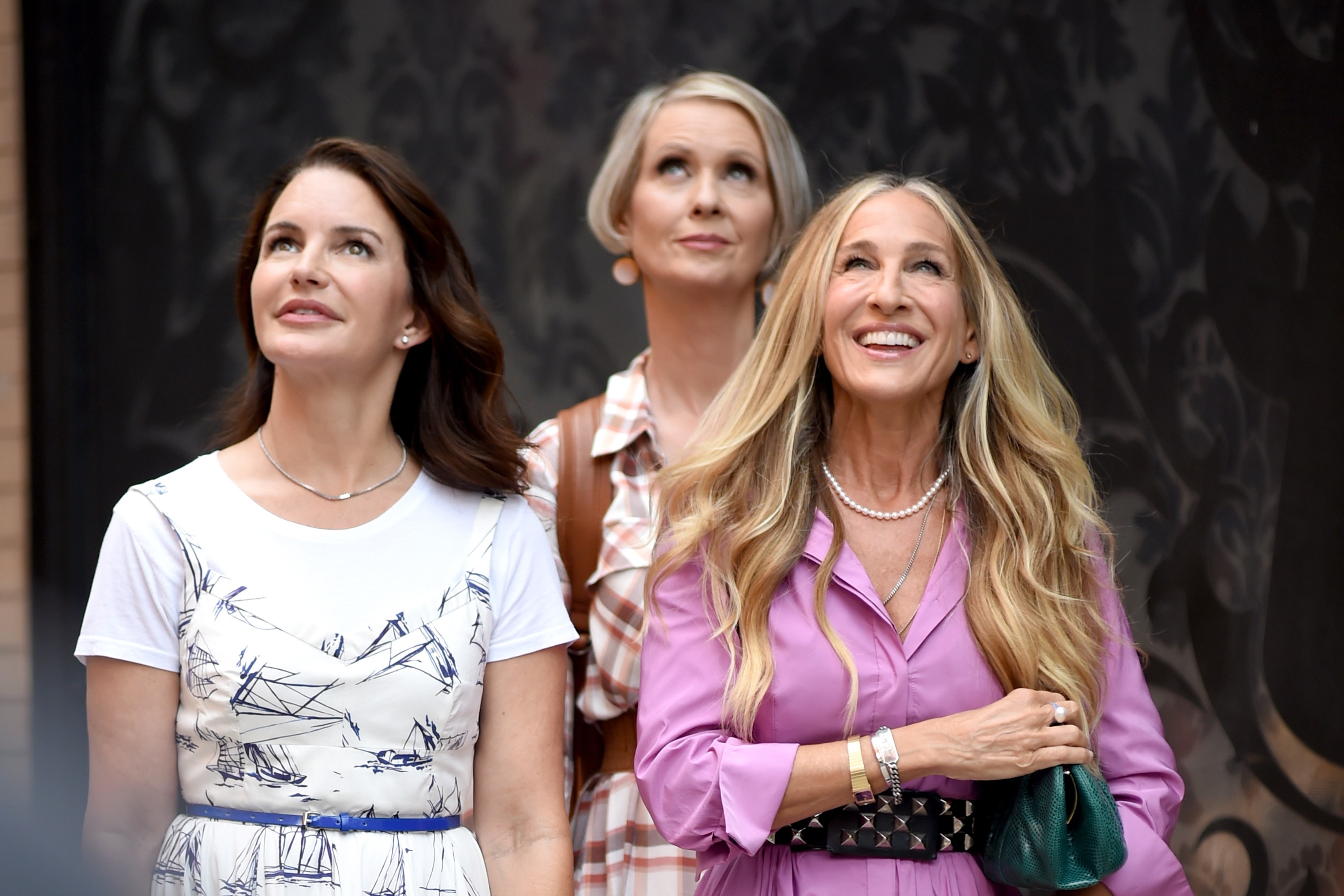
A month into the new year, and we find ourselves already at the end of season one of And Just Like That…, a “new chapter” of Sex and the City. Who among us, TFE readers, has been watching Sex and the City: Redux? A better question perhaps: Who among us hasn’t?
For those in the know, it has been 12 years (!!!) since the sequel to the feature film continuation of the iconic late ’90s/early ’00s HBO series premiered—and revolted critics and fans alike with its bewildering, tone-deaf storylines set amid a real, ongoing financial crisis. (Abu-Dhabi-do, anyone?) That the legacy of Sex and the City, already oft-critiqued and amply picked apart, managed to retain goodwill following the abysmal sequel speaks to how potent a connection it had—and has—with devotees of the original TV incarnation. And legacies like that rarely remain untouched, dormant; not in today’s content-driven, streaming-dominant entertainment culture. Which led then, almost a quarter century after its debut, to the reintroduction of Sex and the City’s principle quartet—except now it’s essentially a trio, as Kim Cattrall infamously (and wisely?) opted not to reprise her legendary role of sex-positive Samantha Jones. We were off to a rocky (re)start right there.
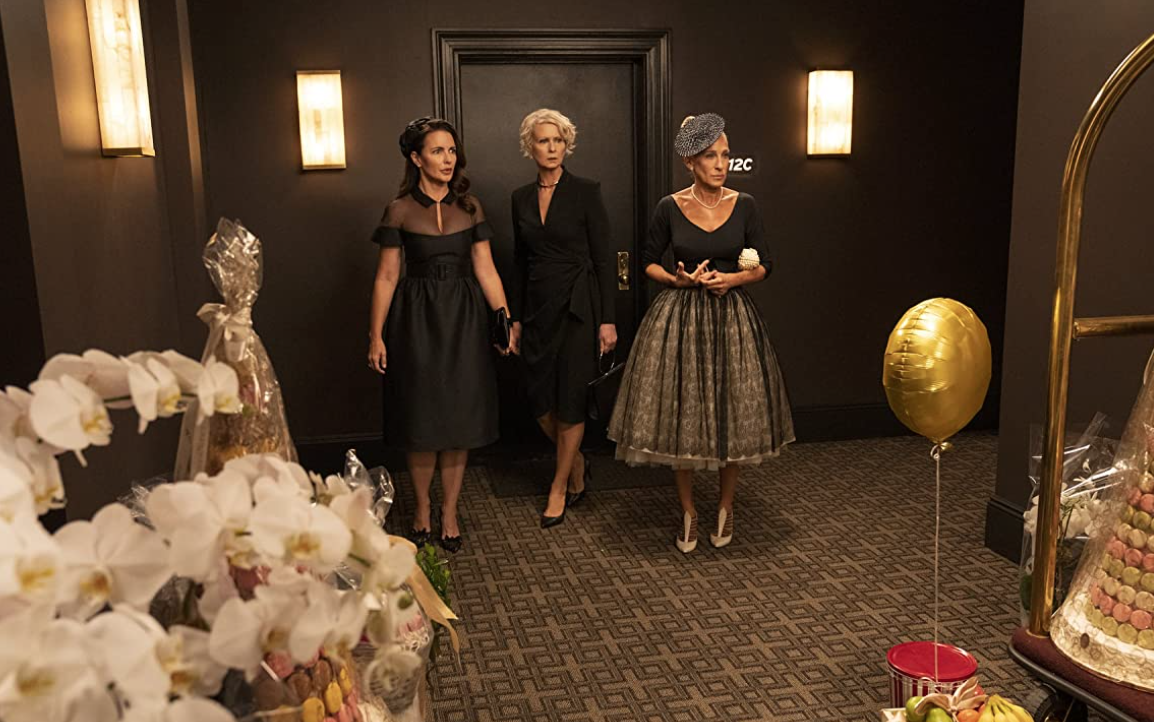
Longtime fans of the series know well that Sex and the City, which at its core was a valentine to New York, had a…diversity problem—a lack of diversity that bordered on perversity, particularly considering the hyper diversity of the actual city routinely called the fifth character on the show. It stands to reason then that updating Sex and the City to the 2020s would mean course-correcting on the diversity and inclusion (among other) fronts.
Yet something surely unintended went awry with the new and improved (?) alchemy: Those who (re)conceived this show seem to have lost sight of more than a few fundamental truths they established that made Carrie, Charlotte and Miranda Carrie, Charlotte and Miranda. Which is to say…what have they done with our ladies?!
Having finished the final episode of the season (which, to its credit, does end on a quintessentially hopeful, promising Sex and the City note), I must say that (a) it is nice to have the gang back (b) despite some truly baffling character decisions that, in the context of established narratives, are so out of the place as to appear out of this world. Unreal. Outrageous. Absurd.
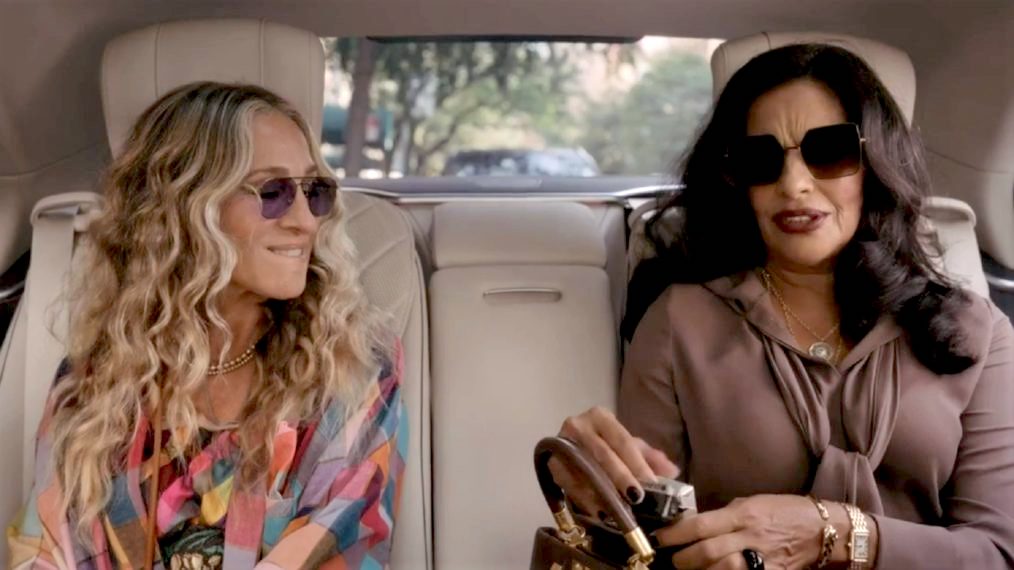
Much has been made of the new BIPOC members of the cast: sassy Seema Patel, Carrie’s realtor friend (and obvious Samantha Jones stand-in); elegant Lisa Todd Wexley, Charlotte’s private school cohort; and Dr. Nya Wallace, Miranda’s professor-turned-confidante of sorts—all lovely additions. Even more ink has been spilled, re: Che Diaz, Carrie’s boss (not to mention Miranda’s inexplicable love interest) and perhaps the most talked about/polarizing character of the entire season. To know Che is to love/loathe Che, no matter how many “comedy concerts” are thrown in to try to convince us otherwise. That die has been cast.
What I found most remarkable about the new contours and configurations of this Sex and the City update is how oddly they seemed to render the initial quartet. Miranda, previously the most competent, self-possessed of the group, who has quit her law firm job in order to purse a Master’s in Human Rights, suddenly is an awkward, misguided SJW, a loose-cannon Karen who makes frequent, public faux-pas and at home permits her teenage son to have loud sex with basically his live-in girlfriend. Charlotte, for years involved in the New York art scene as a gallery director, apparently has zero friends or even acquaintances of color, which puts her in an uncomfortable spot at a dinner party.
And Carrie, still more or less Carrie (make of that what you will), would have us believe that Samantha decamped to London (OK, fine) after a falling out (err…) over being “fired” as Carrie’s publicist (?) because of changing book market dynamics or something. (As if Samantha, canonically loyal and nonjudgmental, who let Carrie pay her for PR services with “two martinis and a lunch,” would ever respond that way to or cease contact with the girls over something so monumentally petty and ultimately inconsequential. Also: Why then does Samantha respond instantly to Carrie’s texts?) Uncharacteristic doesn’t begin to describe such whiplash-inducing swerves in show logic.
I, for one, never bought the wild flex of the first film that Anthony and Stanford would ever wind up together. (The less said about their over-the-top, Liza Minnelli-officiated wedding in the second film—a true jump-the-shark moment—the better.) I could buy that they, despite their mutual distaste and differences, would become friends, but it always strained credulity to have them be anything more. Which made Stanford’s departure from the show (an impossible situation given real-life events) nevertheless a bit of a bummer. Yet no character was done dirtier this season (no, not even Mr. Big) than poor Steve. Not only was he needlessly saddled with a deaf subplot, we also had to witness his baseless cuckolding with nary a reference to a major plot point of the movie: That his one-time infidelity, which he disclosed to Miranda, caused such a fissure of distrust in their relationship, we endured essentially the entire runtime of the film to see them finally reach a place of forgiveness and reuniting. #lovewins
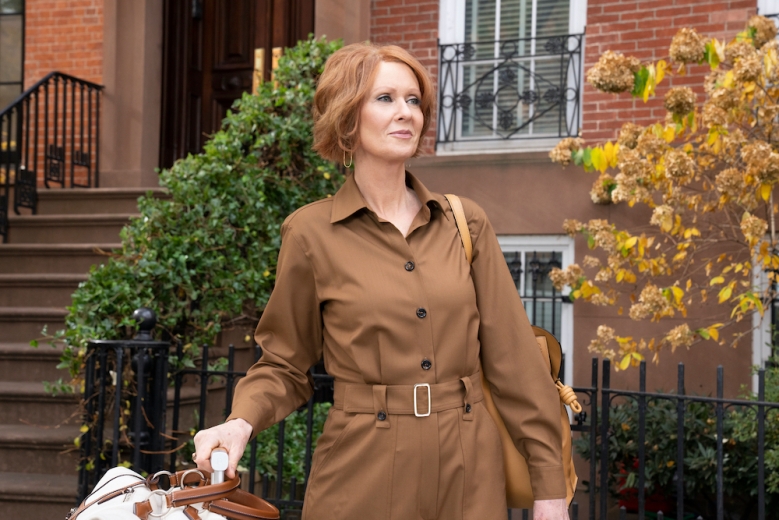
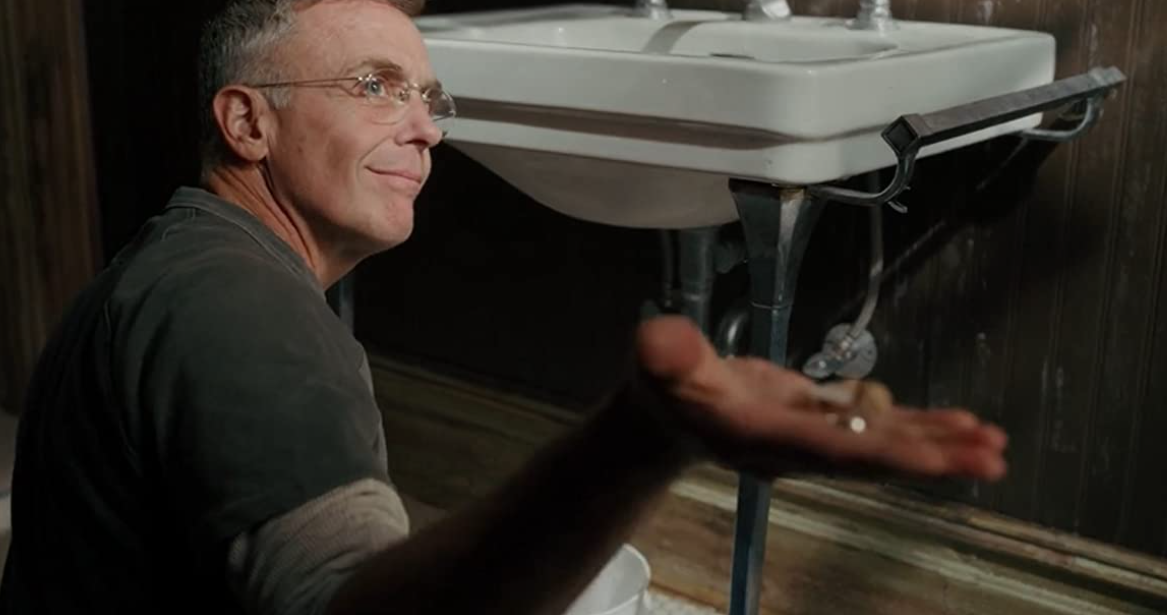
It’s galling that the writers of And Just Like That… conveniently omit a core character trait of Miranda’s for the purpose of an illicit, extramarital love affair: That someone like Miranda, who prides herself on integrity and justice, would even do what she does to Steve without talking to him first. It strains credulity, historical record, and overall narrative coherence. Call it a continuity error, like Steve’s come-and-go deafness (literally episode to episode), it does seem awfully glaring for stalwart Sex and the City fans. (In other words, I couldn’t help but wonder: Is Michael Patrick King, who took these characters and deepened their original storylines and relationships, still the right person to evolve them moving forward?)
Now, don’t get me wrong, on balance I did enjoy And Just Like That… and noticed an improvement in quality (if not always consistently) during the course of the season. Sarah Jessica Parker, Kristin Davis and Cynthia Nixon are all fine actresses, so any quibbles are no shade on them. Will another season allow for better gelling and smoothing out of characters new and old? Does anyone else wonder how Carrie’s new podcast somehow operates like a call-in radio show? (No? Just me?)
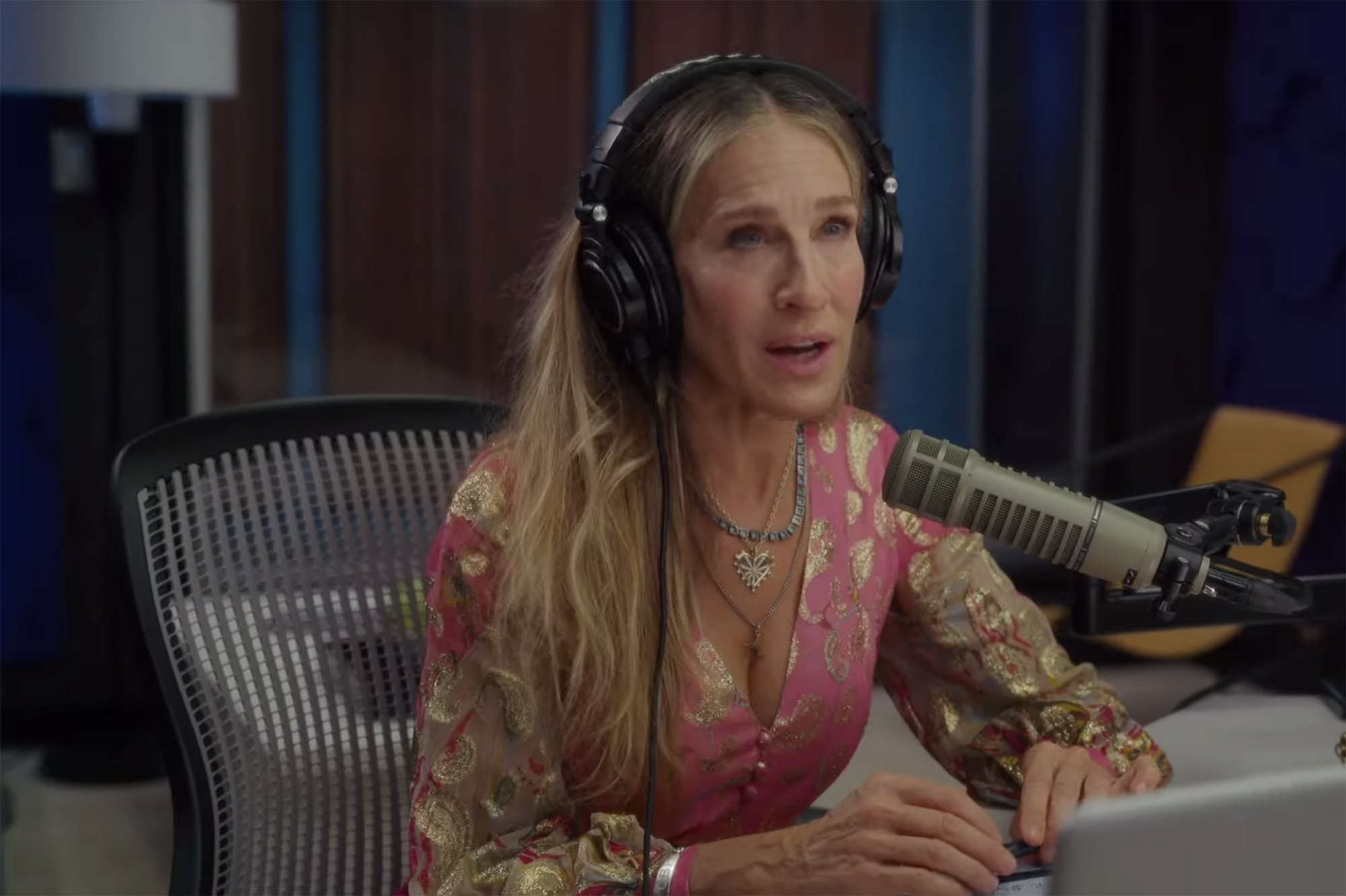
The first season of And Just Like That… is streaming now, in its entirety, on HBO Max. There is no official word yet on a second season though ratings and statements from the team suggest that that's likely.